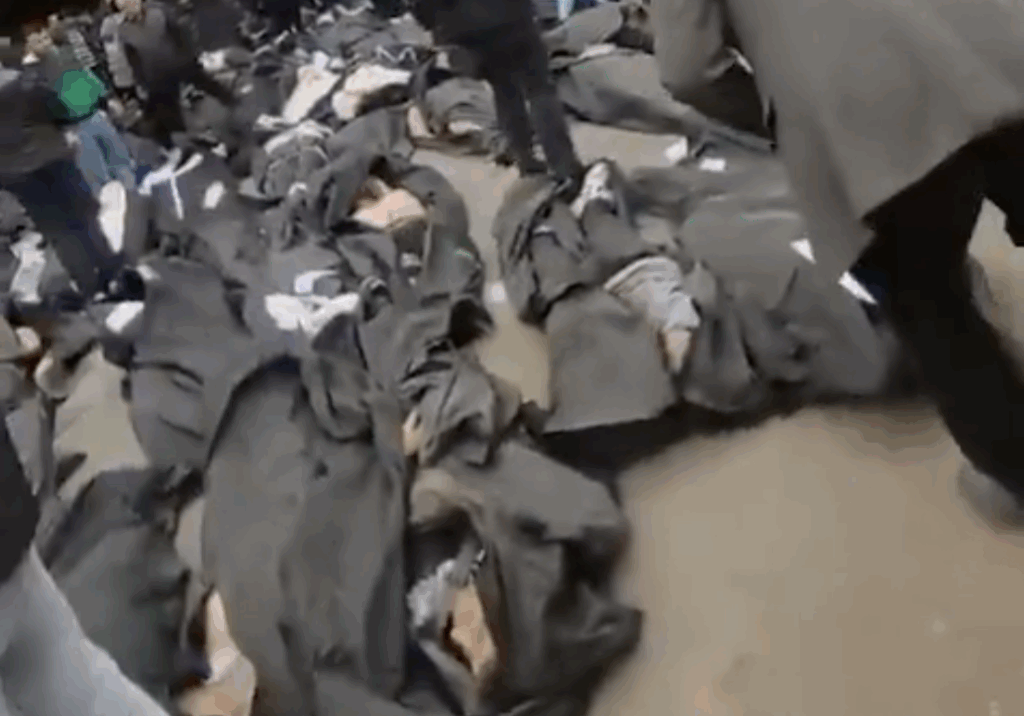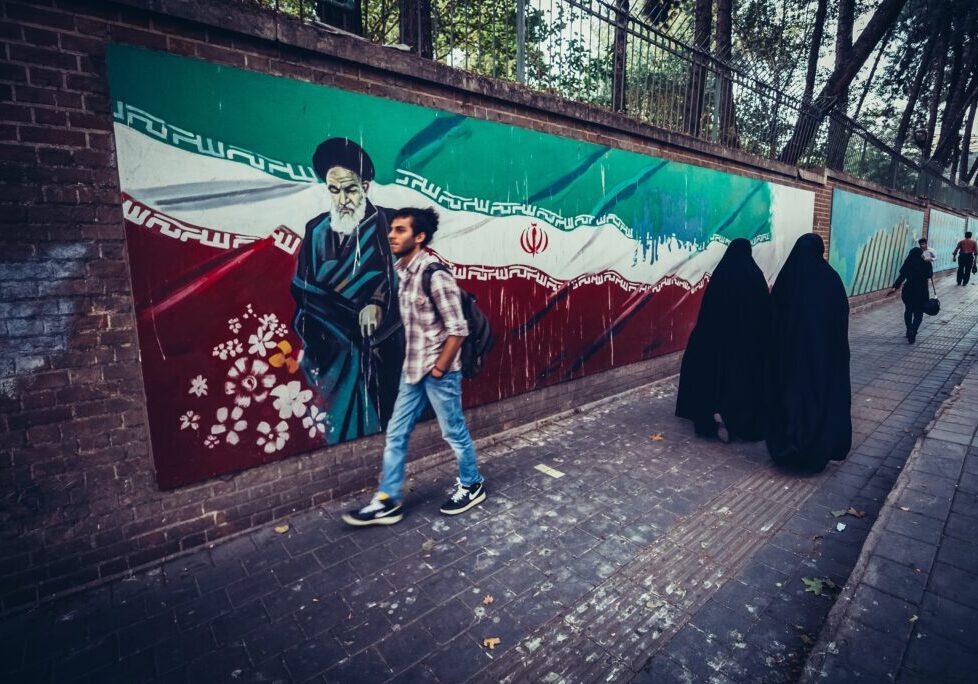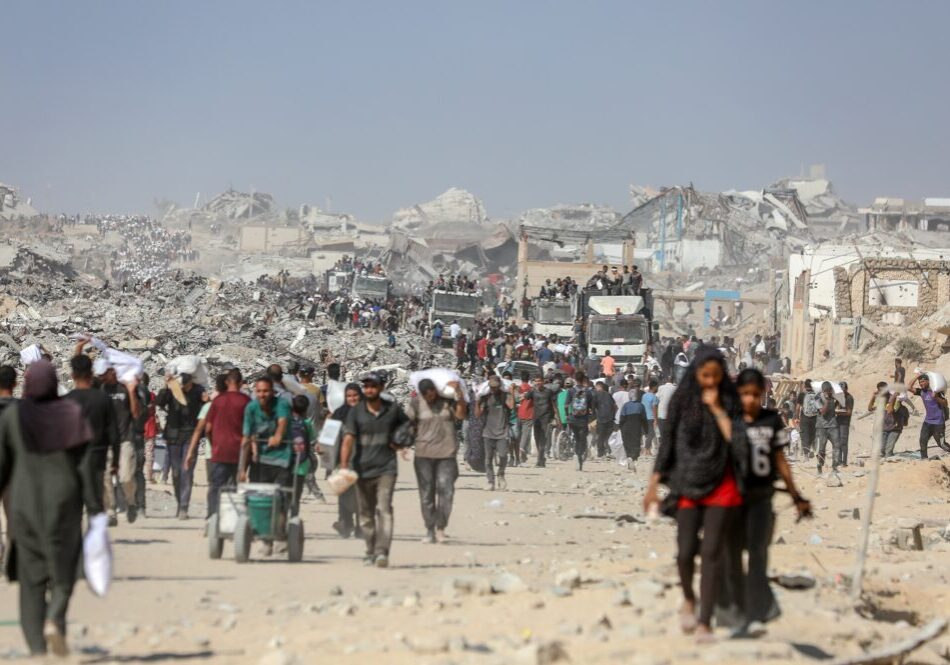Australia/Israel Review
The State of the Iranian Revolution
Aug 27, 2010 | David Menashri
By David Menashri
Since coming to power in 1979, the Islamic Revolution in Iran has had two main aims. First, it wished to remain in power and if this was the aim of the Islamic Revolution, 31 years later, it has been successful. But revolutions don’t come about simply to replace one regime with another. They come with a promise that their ideology can better the lives of people and advance the country, can make a difference. And in this, the second aim of the revolution – to make the life of the Iranian people better than it was under the Shah – 31 years later, there has not been any meaningful success.
The Iranian people have been struggling over 100 years to achieve two main aims: greater liberties and a better socio-economic situation for the underprivileged people of Iran. Thirty one years after the revolution, there are no greater liberties than what there used to be under the Shah – and the Shah was not a democrat. Under the Shah, to speak against the government was a crime. Today to speak against the government is a sin – I don’t know which one is worse. In terms of socio-economic realities in Iran, the lives of the poor people of Iran are not much better today than they used to be 31 years ago. Therefore, given the disaffection and disillusionment of the people of Iran, it is clear that the Islamic Revolution is not yet stabilised,
One thing should be clear, the revolution was not merely about bringing about an Islamic regime, or returning to Islam. I lived in Iran during the last two years of the Shah’s rule for field studies on my PhD thesis. Had I been an Iranian citizen in ’78, I might have joined Ayatollah Khomeini. The people that supported Ayatollah Khomeini were not only clerics nor acting only out of Islamic devotion – most of the liberal intellectuals in Iran, the Communist Party, the National Front people, everyone dissatisfied with the rule of the Shah joined Khomeini because he brought with him the promise that he will bring people a better life.
In terms of its ideology, what we saw in the Islamic Revolution in Iran was that Ayatollah Khomeini took a most radical interpretation of Islam, brought it to power and basically made it appear that this is Islam, or at least Shi’ite Islam. Yet, if you visit jails in Iran, you will see many Iranian clerics who spend their time in jail because they do not agree with Ayatollah Khomeini. The leading ayatollah in Iran at that time of the revolution, Grand Ayatollah Seyyed Mohammad Kazem Shariatmadari, did not and was placed under house arrest until his death seven years later. The man that Khomeini picked to be his successor, Grand Ayatollah Hossein-Ali Montazeri, later disagreed with Khomeini and was eventually placed under house arrest from 1997 until he passed away six months ago. The most prominent Ayatollah in Iraq, Sistani (himself of Iranian origin) does not accept the philosophy of Khomeini.
To be sure, civil society in Iran is wonderful. The women’s organisations in Iran are the most active in the entire Middle East. Student organisations are more active than in any other Middle Eastern country. The cinema industry is one of the best in the world, book publications flourish, newspapers – until they are shut down – represent various views. So there is honestly a wonderful civil society there.
A country that has young people like those that head Iranian women’s and student organisations has a bright future ahead of them. However, a country that has a ruling system like the Iranians have today has a difficult life at present.
Because at the end of the day, how important is it that they have wonderful intellectuals, if they are in jail or in exile? Even when the figurehead of the refomists was president for eight years, he could not advance his own policy. When it is the moment of truth, when someone has to push the button, it’s not the liberal intellectuals, but the clerics that are in power.
The radical-conservative camp has huge assets. Firstly, they claim to speak in the name of God – it’s wonderful that you wake up in the morning and you tell people what is the true view of Islam on any given topic. Now if this is not enough, then they have the Revolutionary Guards. Now, tell me if you have a revolutionary regime and you speak in name of religion (which people so admire) on one hand and the power of the military on the other hand, then what else do you need?
Well, there is another thing, and they have plenty of it; the determination to use that power to suppress their opponents. They are determined not to let the opposition do to them what they did to the Shah. I will quote you from a sermon of a leading ayatollah, Mohammad-Taqi Mesbah-Yazdi, who is believed to be the mentor of President Mahmoud Ahmadinejad. When students were struggling in the streets of Teheran a few years ago, he said that whoever thinks Islam is a religion of mercy does not understand what Islam is. Islam, he said, is a religion that dictates to us to take a sharp sword and cut the heads and tongues off people who speak or act against it. In June 2009, following the disputed presidential elections, they have shown their determination.
What happened last year during the election was a very meaningful development in the history of the Islamic Revolution. After the elections of June 2009, the Iranian regime is no longer the regime that it was before. The regime that was based on moral values – on Islam, religion, ideology – is now primarily based on the power of the guns of the Revolutionary Guard. Supreme Leader Ayatollah Ali Khamenei, who could previously portray himself as above politics, downgraded himself to a political actor supporting one faction in the country against the other. The people who went to the streets calling “death to the dictator” were not only against Ahmadinejad, they were raising their voice against the system at large. There is a degree of disenchantment, disillusionment, and dissatisfaction among the people of Iran unmatched in any other time in the short history of 31 years of the Islamic Revolution.
The question is, what can be done? I don’t want to speak about what can be done to stop the Iranian bomb, which, ultimately, is the most important thing, but what can be done to accelerate the change in Iran. Honestly, there is not much that we can do directly, this is up to the Iranian people. But indirectly, there is much that Europe can do, that America can do, there is much that you in Australia can do in terms of pressuring Iran. I don’t know what the straw that will break the camel’s back will be, but we have to put more and more straws on that back until Iran decides to change its policy. Iran is not as powerful as they pretend to be.
The Iranian people have been active on the political scene more than any other nation in the Middle East. There have been four great mass movements in Iran in the last 120 years, and two really big revolutions in the 20th century – a record not too many countries can claim. Iran is the only country which had constitutional revolution made by the people in 1905; Iran is the only country in the Middle East which experienced an Islamic Revolution. They are likely, one day, to move on to another such movement.
The situation today is that there are two trains that have already left the terminal in Teheran – one is carrying a message of regime change or policy change and one is carrying the message of a nuclear Iran. What the world should do is support the young people of Iran in accelerating the internal change; and slow down as much as possible the nuclear development program. Now, do we know when the internal change will come? Revolutions in history have never had the good manners of telling us in advance when they are going to happen. Following developments inside Iran, I know that the degree of dissatisfaction will ultimately lead to a change, but embracing the opposition in Iran is not going to do them any favours. I think the main thing that the world can do to Iran is to pressure them on moral issues, pressure them on human rights, pressure them on the economy, via sanctions. These legends that sanctions cannot work, I don’t believe in them. I know that as a fact, wherever there was pressure on Iran, they changed their policy. Right now, the main pressure is domestic pressure. The people of Iran are unsatisfied and disillusioned from the unfulfilled promise of the revolution.
After the 1967 war, trying to explain the Arab defeat, Muhammad Hasanayn Haykal, the close associate of Egyptian President Nasser, explained it this way – while we the Arabs were playing backgammon, the Israelis were playing chess. I think that the Western world is now playing backgammon, while the Iranians are playing chess. It should be the other way around. The regime has weak points, there are ways to pressure them, they are facing challenge from their own people. There is a degree of dissatisfaction inside Iran and these are good cards in the hands of the Western world to pressure them. Unfortunately, the world is very selfish – each country is looking for its own selfish and immediate economic interest – and I don’t see the world mobilised to do these things.
Professor David Menashri is the founding-director of the Centre for Iranian Studies at Tel Aviv University. He is currently visiting Melbourne as a guest of the Australian Centre for Jewish Civilisation at Monash University and will be visiting other cities as a guest of AIJAC. The above is based on a talk he gave at an AIJAC function in Melbourne on July 27.
Tags: Iran






